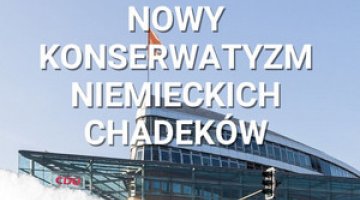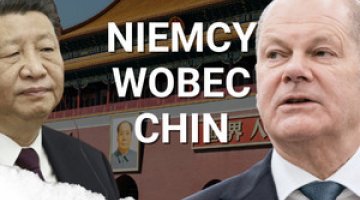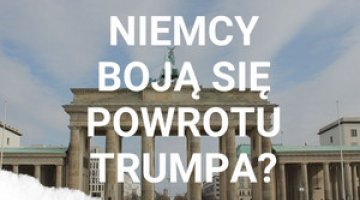The Wagenknecht party. Germany’s new protest party
On 23 October, Sahra Wagenknecht, the former chairwoman of the Die Linke parliamentary group, announced that a new party would be set up based on the Bündnis Sahra Wagenknecht–for Reason and Justice (BSW) association which was registered at the beginning of October. The group’s leaders include Amira Mohamed Ali (its chairperson, who served as co-chair of Die Linke until October); Christian Leye (a former economic spokesman for Die Linke and a Bundestag member representing the most populous state, North Rhine-Westphalia (NRW), who attracted publicity for signing a statement blaming the US for the war after Russia invaded Ukraine); Lukas Schön (a member of Die Linke since 2006, also from NRW; he will be responsible for the organisational set-up of the new party); and Ralph Suikat (the association’s treasurer, a millionaire from Karlsruhe, founder of an IT company and a supporter of higher taxation for the wealthy).
The leadership of Die Linke announced that proceedings would be initiated to expel the party members involved in the association’s operation, and its co-chair Martin Schirdewan called on the breakaway MPs to resign from their parliamentary seats. Wagenknecht has been the subject of expulsion proceedings from Die Linke for several months.
Formally, the new party is to be established in early January during its founding congress, which has been scheduled for that time. Wagenknecht, together with several other Die Linke MPs, has handed in her resignation from the party, but at the same time declared her willingness to remain in the Die Linke parliamentary club, which currently has 38 MPs.
Wagenknecht is on the left of the political spectrum inside Die Linke. She is considered the most popular and at the same time most controversial member of the party. In February, she co-authored the ‘Manifesto for Peace’, whose demands included the suspension of weapon supplies to Ukraine. So far, it has been signed by around 900,000 people online (see Appendix. Political biography).
Commentary
- The creation of the association and the announcement that a new party will be set up mark the end of the constant conflict between Wagenknecht and the leadership of Die Linke, which has been continuing for years. She has accused the party of betraying its ideals and focusing on issues which are of secondary importance to the electorate. She pointed out that it had become a party elected primarily by well-educated and well-earning people from large cities in Western Germany, whose approach to climate protection is overly radical, which wants to welcome migrants as widely as possible and has put ideals of equality on a pedestal. According to Wagenknecht, his has drawn the party away from solving the problems of ‘ordinary people’, causing the most serious crisis inside the party since its establishment in 2007, when a breakaway group from the SPD and post-Communists from the former Socialist Unity Party of Germany joined their forces. Die Linke did not cross the 5% threshold in the Bundestag elections in 2021, and has now entered parliament only thanks to the special provisions of electoral law. (See ‘The game has new rules. Amendment to the electoral law for the Bundestag’). In the last regional elections in Hesse and Bavaria, the party received 3.1% and 1.4% of the vote respectively, and will not be represented in the parliaments of these federal states, while according to federal polls it has approximately 4% support. At the same time, since the beginning of September, Die Linke has been unable to elect new leaders of its parliamentary party due to its internal conflicts. Over 6000 members left the party in 2022; currently it has around 54,000 members.
- The dissolution of the Linke group after Wagenknecht’s new group is founded will mean the effective end of its presence in the Bundestag; it just needs two more members to leave it for this to happen. Die Linke will then lose a number of privileges, such as funding for employees (currently it has 108 employees), access to some parliamentary rooms and longer speaking time in parliamentary debates. Wagenknecht will nevertheless remain in the Die Linke parliamentary club until she registers her own party, since she hopes to retain the powers to which she is entitled for as long as possible to build her new party, and to shift part of the responsibility for the party’s collapse onto the leadership of Die Linke.
- The new grouping will try to take over those from both the extreme left and right who are disappointed with the current policy of Chancellor Olaf Scholz’s cabinet. This will be facilitated by the worsening economic crisis and record-high levels of dissatisfaction with the coalition government (79% of poll respondents assess its performance negatively). At the same time, the few polls conducted so far show that the potential support for the new party ranges from 20% in the west of Germany to 30% in the east (according to a survey by Insa for Bild am Sonntag). Moreover, 40% of AfD supporters ‘could imagine’ voting for her. The electoral calendar also looks favourable for her party. There is no 5% threshold in the elections to the European Parliament (spring 2024), and the nearest Bundesländer elections scheduled for next autumn will be held in Thuringia, Brandenburg and Saxony, eastern states where Wagenknecht is very popular. According to the July survey, her party can count on around 25% support in Thuringia, compared to 22% for the current poll leader, the AfD (in polls that do not include the new party, about 35% of respondents currently intend to vote for the AfD).
- It remains unclear as to whether the Wagenknecht group will cooperate with the AfD. While she herself has so far been against such a coalition, some AfD activists have mentioned the option of possible cooperation; one of them is Björn Höcke, the chairman of the regional structures in Thuringia, who is under surveillance by German counterintelligence. It cannot be ruled out that the two parties will strike a deal to push forward individual projects, especially on issues such as radically limiting immigration and changing the current objectives of Germany’s climate policy, as well as in the fields of foreign and European policy (Wagenknecht supports a radical transformation of the EU into a body that would be tasked only with coordinating the decisions of member states). Ephemeral and often inconsistent as their political agendas are, both the AfD and representatives of the new initiative still want to continue cooperation with Russia, including ensuring supplies of raw material (Wagenknecht is one of Germany’s most pro-Russian politicians), weapon supplies to Ukraine to be discontinued immediately, and an anti-American policy to be adopted. Wagenknecht, unlike the AfD, would like a significant increase in social spending to be financed by imposing higher taxes on the richest and making radical cuts to defence spending. In 2017, she demanded that NATO be disbanded and efforts to establish cooperation with Russia be made. The latter demand will be backed by AfD politicians and supporters, especially in the eastern federal states. However, the leaders of both formations differ fundamentally in their approach to German history; for example, politicians from the AfD have often relativised Germany’s responsibility for the Second World War, which Wagenknecht has never done.
- The biggest challenge facing the new party concerns its future organisation. The name of the association, including the name of its founder, reflects both her ambitions and her position in the new initiative. It is also an attempt to take advantage of her recognisability as a former Die Linke politician. At the same time, Wagenknecht’s previous experience with creating new initiatives has made it clear that she lacks organisational talents, as exemplified by the failure of the Aufstehen (Arise) association set up in 2018, which was planned to form the nucleus of a new party. The newly established association is supposed to help overcome these problems since business representatives and people with management experience in political party work have been included in its leadership. The first tests of the group’s effectiveness will be the organisation of the founding congress in January next year and the elections to the European Parliament.
Appendix. Political biography
Sahra Wagenknecht was born in Jena (Thuringia). Her father comes from Iran. In 1989, she joined the Communist SED party. After the reunification of Germany, she was a member of the federal board of its successor, the Party of Democratic Socialism (PDS), for many years. She then strengthened her political position in Die Linke, where her supporters called her the new Rosa Luxemburg because of her charisma, oratorical skills and radical views.
In 1991–2010, she co-led the Communist Platform (KPF), an association of orthodox members and supporters of Communist-oriented parties. She was still there after the merger of PDS and the Labour and Social Justice–the Electoral Alternative (WASG) parties. German counterintelligence (BfV) classified the KPF as an extremist organisation. In 2004–9, Wagenknecht had a seat in the European Parliament and then in the Bundestag. In 2010–14, she was vice-chair of Die Linke, and from 2015 to 2019 she co-chaired the party’s parliamentary club.
She is the wife of Oskar Lafontaine, who in 1995–1999 served as the chairman of the SPD and a minister in the government led by this party, and was later a founder and co-chairman of Die Linke. In 2005, a group of social democratic rebels (for example, they opposed the Agenda 2010 labour market reforms) led by Lafontaine set up the WASG and, after long-lasting consultations, joined forces with the PDS. In the same year, they ran together in the Bundestag elections and won 8.7% of the votes. They have remained on the political scene from that time on, and since 2007 they have operated under the name of Die Linke. Lafontaine himself quit the party in 2022.
Wagenknecht has been perceived within Die Linke as a figure who has been increasingly polarising it, and has often acted contrary to its agenda. In June 2021, her critics filed a motion to initiate proceedings to expel her. Her camp was weakened after the federal party conference in Erfurt in June 2022, which Wagenknecht had previously described as the “last chance” for Die Linke, during which the demands and politicians she backed failed to gain support.
At the same time, her outstanding rhetorical skills and charisma have earned her a reputation as a star of political talk shows, on which she has appeared far more frequently than any other Die Linke politicians, thus contributing to the party’s electoral successes. Her books are bestsellers (the last one, published in 2021, earned her €700,000), and her book signings often turn into rallies of support for her. She is one of the most popular German politicians on social media, with over 750,000 followers on Facebook and around 650,000 subscribers on YouTube.
She is a fan of Hegel, about whom she wrote her master’s thesis at the Faculty of Philosophy at the University of Groningen in the Netherlands. She earned a Ph.D. from the Chemnitz University of Technology, the title of her dissertation being The Limits of Choice. Saving Decisions and Basic Needs in Developed Countries.
Wagenknecht was one of the first German politicians to speak publicly about burnout; in 2019, she withdrew from political life for many months as a result of it.




